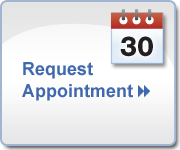Has someone you love suggested that your snoring may mean that you have sleep apnea? Are you inexplicably tired or have a hard time concentrating after a full eight hours of sleep? Let’s take a closer look at sleep apnea symptoms. In this short post, we’ll review what sleep apnea is and what its common symptoms are. Then, we’ll discuss the symptoms that indicate you should see your doctor for an evaluation. Finally, we’ll explore some treatment options for sleep apnea.
What is Sleep Apnea?
If you have sleep apnea, you repeatedly stop breathing—in some cases, hundreds of times—while sleeping. Sleep, especially deep sleep, is interrupted each time you stop breathing until you start breathing again. It’s the interruption of sleep that causes most sleep apnea symptoms.
Sleep apnea is quite common. The American Sleep Apnea Association estimates that “22 million Americans suffer from sleep apnea,” but that “80 percent of the cases of moderate [to] severe obstructive sleep apnea [are] undiagnosed.”
What are Sleep Apnea Symptoms?
There are several sleep apnea symptoms, including:
- Daytime sleepiness
- Inexplicable tiredness after a full eight hours of sleep
- Loud snoring
- Restless sleep punctuated with episodes of “gasping for breath”
- Awaking from sleep feeling out of breath
- Morning headaches
- Excessive dry mouth or dry throat in the morning
- Short attention span or inability to concentrate, and
- Insomnia
Fortunately, none of these symptoms is usually cause for alarm. Even several of these symptoms together may not signify that you suffer from sleep apnea. Stress, side effects from medication, a change of routine, among other events and experiences can cause many of these same symptoms.
When Should You See Your Doctor for Sleep Apnea Symptoms?
 You should speak with Dr. Osborne as soon as possible if you experience any of the symptoms related to stopping breathing, specifically episodes of “gasping for breath” while sleeping or awakening from sleep feeling out of breath. In addition, if your snoring is loud enough to wake someone or is loudest after periods of what appear to be episodes of not breathing, you should schedule an appointment immediately. In addition, if your inability to concentrate or short attention span affects your ability to work effectively or safely, or any of the symptoms from this list last more than a couple days, consult with Dr. Osborne and what steps to take next.
You should speak with Dr. Osborne as soon as possible if you experience any of the symptoms related to stopping breathing, specifically episodes of “gasping for breath” while sleeping or awakening from sleep feeling out of breath. In addition, if your snoring is loud enough to wake someone or is loudest after periods of what appear to be episodes of not breathing, you should schedule an appointment immediately. In addition, if your inability to concentrate or short attention span affects your ability to work effectively or safely, or any of the symptoms from this list last more than a couple days, consult with Dr. Osborne and what steps to take next.
Please tell Dr. Osborne or your hygienist about any sleep apnea symptoms you’re experiencing. We offer the Watermark Home Sleep Study device that you can use to take a simple and inexpensive at-home sleep study. Of course, after discussing your symptoms with Dr. Osborne, he may recommend for you to get a medical evaluation or request a polysomnogram (sleep study) for sleep apnea from your physician.
Sleep Apnea Treatment Options
Osborne Family Dental works directly with you and/or your physician or sleep specialist to treat sleep apnea. Fortunately, there are many treatment options available for those suffering from sleep apnea. Ask us for more information about our Somnomed oral appliance therapy at your next appointment. With the right treatment, you can get a good night’s sleep again!



